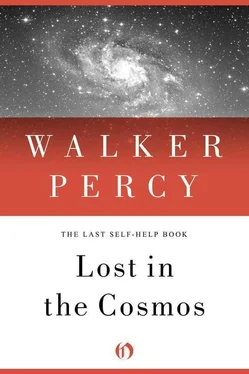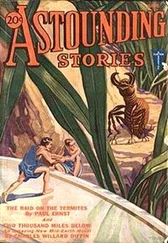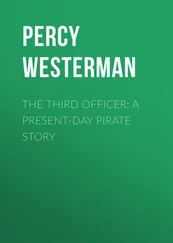Question: Do you identify with one traveler more than with the others? If you do, are there objective grounds for your preference?
(a) I might identify with one or another traveler but it is a subjective choice depending on one’s own experience — how many Mexican bus tours you’ve made, your life situation, and so on. One might be looking for adventure, sex, who knows? — or perhaps one has a rotten job and a rotten marriage and so may want nothing more than a mindless hiatus, so that it doesn’t matter whether the bus is lost or found or touring Mexico or Ireland. It’s too bad that A is unhappy, it is nice that B is happy, and a matter of indifference that C is neither. But what more is there to say?
(b) No, an objective judgment of sorts can be made. Traveler A is a nerd, your sub-ordinary unreflective American tourist, not to be identified with and certainly not to be preferred. B is better off, but not much. C knows this, and though she may not be happy and may not have any expectations, she is nevertheless to be preferred to A or B. For she is at least coming to the end of her rope, the same rope A and B have hold of, and will at least find out what is at the end. It is better to know than not to know.
(CHECK ONE)
The expectations of the autonomous self, to be informed in its nothingness — if only I can get out of this old place and into the right new place, I can become a new person — pins a quasi-religious hope on, of all things, travel.
It is notable that when travel as a recreation mode is experienced vicariously through the media, it undergoes a shift toward the erotic. The old film travelogues of the 1930s give way to TV’s The Love Boat and Fantasy Island, where the boat of the former is an instrument not of travel but of liaison, and the fantasies of the latter are not insular but sexual.
It is otherwise with sports and the media. There, too, a shift has occurred, from active participation to the vicarious participation of spectatorship. Four people used to go bowling, but 100 million watch the Super Bowl. Football, where men try to hit and hurt, has replaced baseball as the national game. It is as if the demotion from participant to spectatorship and from live spectatorship to TV spectatorship has to be compensated by upping the ante in violence.
The passivity of TV and film watching contrasts with the violence with which the watcher identifies.
The two most popular film stars in the world are Clint Eastwood and Charles Bronson. Each kills a great many people in each movie, the former casually, the latter by way of revenge.
Scene from A Few Dollars More: Clint Eastwood is a bounty hunter who is after a wanted man for the reward. As he closes in on his quarry in a saloon, three friends of the wanted man come to the latter’s rescue. Clint Eastwood kills all four without changing expression. This pleases us, even though Eastwood, unlike Ulysses or John Wayne, is killing just for money.
Recreational drugs offer a spectacular remedy to the disappointed self. Rock star to his chauffeur: “Don’t let anybody kid you — nothing, not sex, not music, not adulation, can compare with the rush of intravenous Dilaudid.” There are only these contraindications: expense, crime, illness, death.
There remains sex as the recreational mainstay, the cheapest, most available, and most pleasurable of recreational options. By “sex” let us specify the entire spectrum of the erotic, from the “romantic” encounter — cool Audrey Hepburn meeting testy Cary Grant by accident when their dogs’ leashes get entangled on the Left Bank — to the cruising homosexual fellating his five hundredth stranger in Buena Vista Park.
The mystery of the erotic is that it seems to be proof against the disappointments of other sectors of life and to transformation by the media. Travel may be eroticized by the media, but the erotic is never travelized.
Compare the disappointment of ordinary social life, the traditional recreation of society, with the erotic encounter.
Scene in one thousand movies: a party, formal stuffed-shirt party, NYC cocktail party, country club party, New Year’s Eve party, hippie party — any kind of party — but with the one common denominator of a failed festival, a collapsed and fragmented community. There is always the painfully perceived gap between what is and what might be. If there were such a device as a social-relationship indicator and one could quantify the relationship what-is/what-might-be, most parties would register less than 5 percent. Hence the booze. Unlike the use of spirits in the past, the purpose of alcohol is not to celebrate the festival but to anesthetize the failure of the festival. The locus of the failure is the self. Richard Pryor: Why free-basing? Because it wipes out the self.
But then at the party, the failed festival, one meets the eye of who else but a stranger and where else but across a crowded room. Eye contact, as the pathognomonic expression of the times goes, is maintained one tenth of a second longer than socially prescribed. It is enough. One approaches. A conversation takes place. Its chief characteristic is that, no matter how banal it is, it is charged with significance.
I feel that I know you.
I don’t think.
I feel that I do.
Do you know what I mean?
Yes.
The social-relationship indicator would jump to 95 percent.
The exit line is another one thousand movies: Why don’t we get out of here — I know a little Italian restaurant around the corner.
Change of scene: from a failed festival to the last remaining unfailed festival of the twentieth century: the erotic encounter.
A quiet place. Two glasses of wine. Now the alcohol celebrates the festival: The music? Perhaps the Muzak of the cocktail lounge, but it sounds like the dancing violins of Mozart. A touch of arm to arm. A brush of knee to knee. An arrangement. Could you meet me at— A liaison …
The sex and violence in Western life, especially American life, are commonplaces. But the important questions do not have commonplace answers. For example: What is the relation between the two? Are they merely, as one so often hears, the paired symptoms of a decaying society like the fifth-century Roman Empire? Or is there a reciprocal relationship? That is to say, is a thoroughly eroticized society less violent and a thoroughly violent society less erotic?
Or, the more ominous question: Suppose the erotic is the last and best recourse of the stranded self and suppose then that, through the sexual revolution, recreational sex becomes available to all ages and all classes. What if then even the erotic becomes devalued? What if it happens, as Paul Ricoeur put it, that, “at the same time that sexuality becomes insignificant, it becomes more imperative as a response to the disappointments experienced in other sectors of human life”?
What then? Does the self simply diminish, subside into apathy like laboratory animals deprived of sensory stimulation? Or does the demoniac spirit of the self, frustrated by the failure of Eros, turn in the end to the cold fury of Saturn?
It is no longer open to Clint Eastwood to do what Cary Grant did. In fact, Eastwood’s character, Dirty Harry, doesn’t like girls. But he has his.44 Magnum.
Will the bumper stickers of the 1990s read Make Love Not War or Love Is Gone but War Remains?
Hold on, says the reader. Just a minute.
Yes?
Are there not plenty of good people left? decent folk who have no truck with what you call the spirit of the erotic and the spirit of violence? millions of people, in fact, such as those described by Charles Kuralt on the road in America, who are without exception good, kind, neighborly, generous, patriotic folk?
Читать дальше












